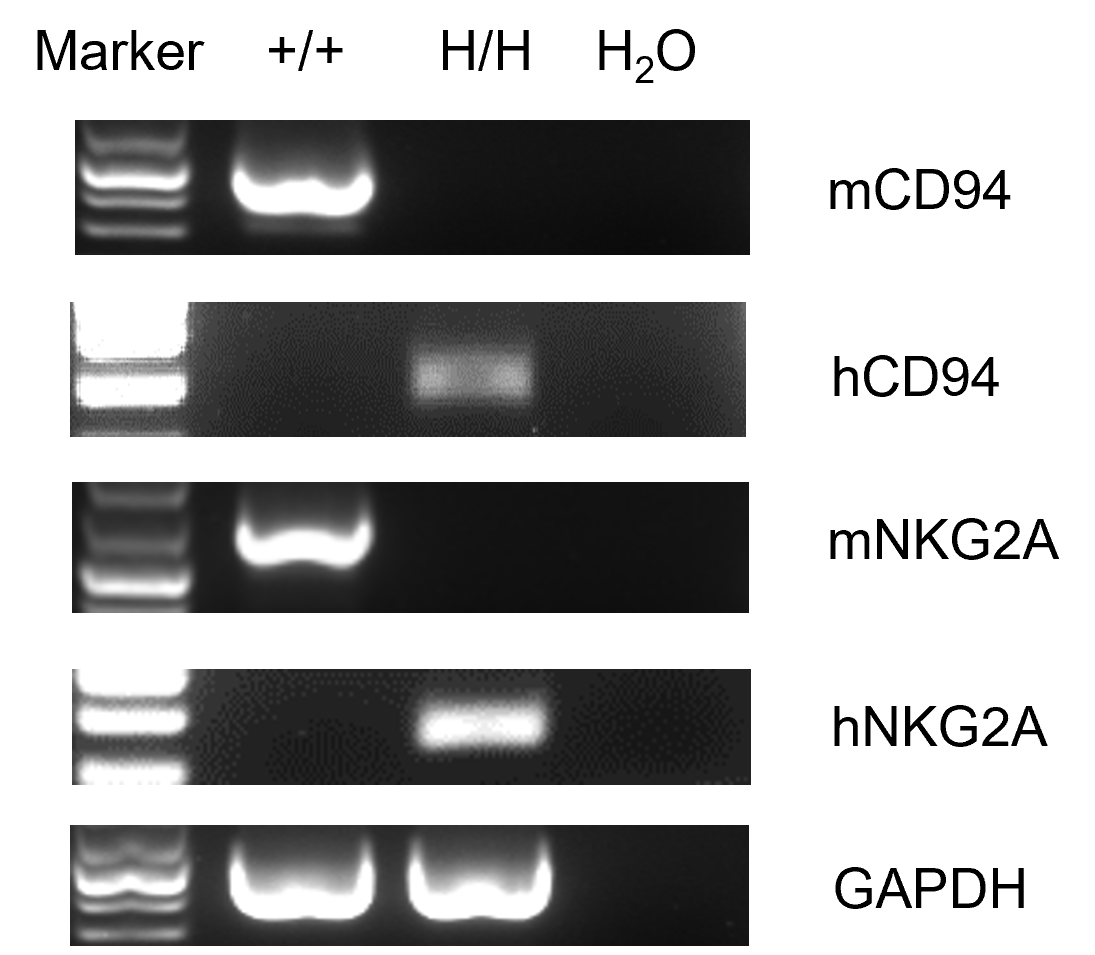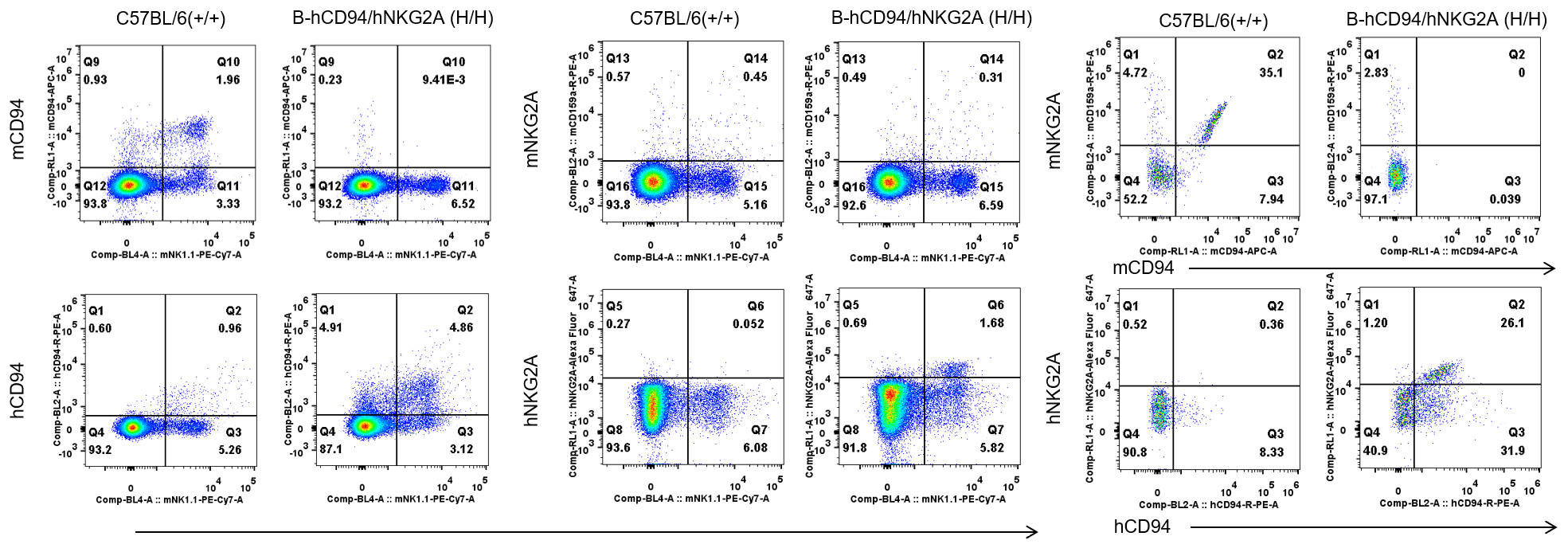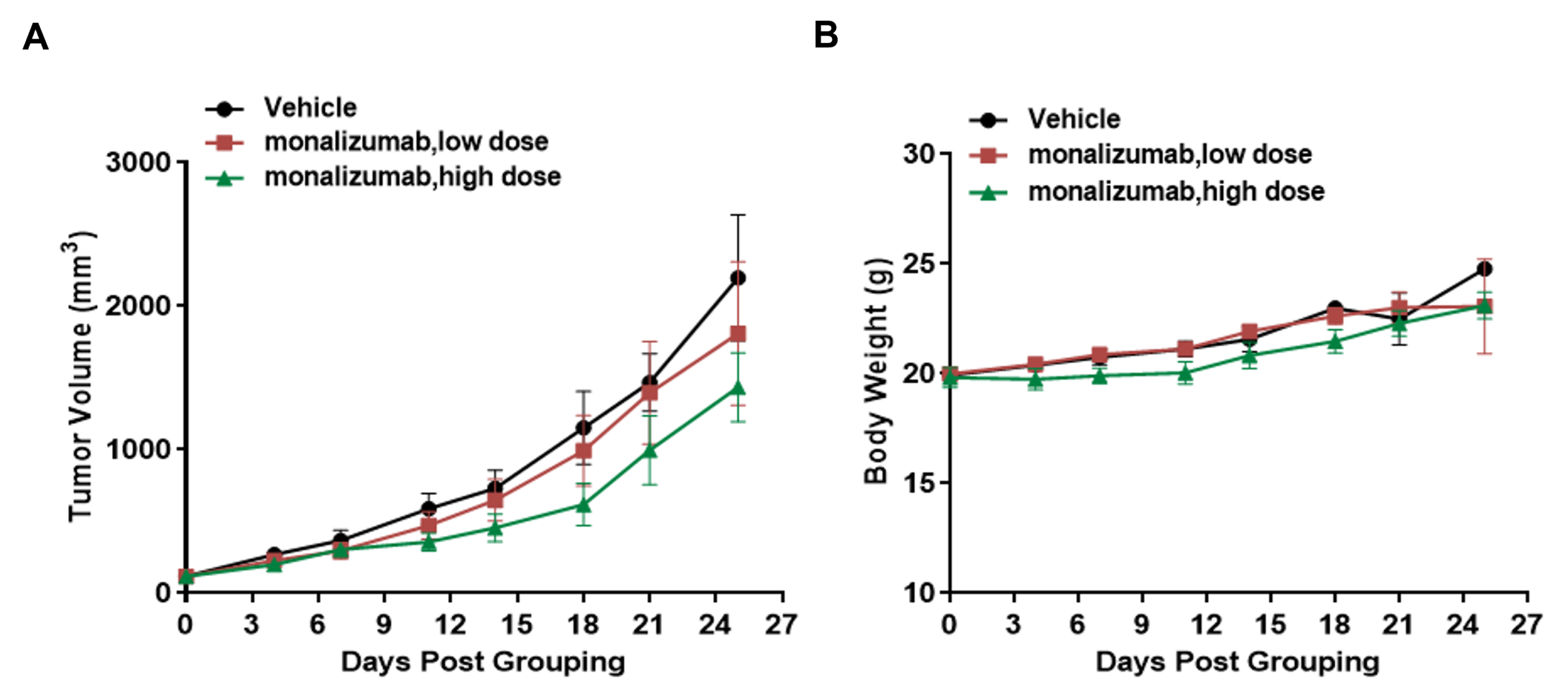Basic Information
-
Gene targeting strategy

-
Exons 3~6 of the murine Klrd1 gene (which encodes the extracellular domain) were replaced by human KLRD1 exons 3~6 in B-hCD94 mice. Exons 2~6 of the murine Klrc1 gene (which encodes the extracellular domain) were replaced by human KLRC1 exons 2~6 in B-hNKG2A mice.
-
mRNA expression analysis

-

Species-specific CD94 and NKG2A gene expression analysis in wild-type and humanized B-hCD94/hNKG2A mice by RT-PCR. Murine Cd94 and Nkg2a mRNA were detected in splenocytes isolated from wild-type (+/+) mice, while human CD94 and NKG2A mRNA were detected in homozygous B-hCD94/hNKG2A (H/H) mice.
-
Protein expression analysis

-

Species-specific CD94 and NKG2A protein expression analysis in wild-type and humanized B-hCD94/hNKG2A mice. Splenocytes were isolated from wild-type C57BL/6 (+/+) and homozygous B-hCD94/hNKG2A (H/H) mice and analyzed by flow cytometry using species-specific anti-CD94 or anti-NKG2A antibodies. Murine CD94 and NKG2A proteins were detected in wild-type mice, while human CD94 and NKG2A proteins were detected in B-hCD94/hNKG2A mice. Monalizumab (in house) was used to detect human NKG2A protein.
-
In vivo efficacy of an anti-human NKG2A antibody

-
In vivo efficacy of an anti-human NKG2A antibody

Antitumor activity of anti-human NKG2A antibody in B-hCD94/hNKG2A mice. (A) Anti-human NKG2A antibody inhibited hHLA-E MC38 tumor growth in B-hCD94/hNKG2A mice. Murine colon cancer hHLA-E MC38 cells were subcutaneously implanted into homozygous B-hCD94/hNKG2A mice (female, 6-7 week-old, n=5). Mice were grouped when tumor volume reached approximately 100 mm3, and treated with anti-hNKG2A antibody. (B) Body weight changes during treatment. As shown in panel A, anti-human NKG2A antibody (monalizumab, in house) were efficacious in controlling tumor growth in B-hCD94/hNKG2A mice, demonstrating they provide a powerful preclinical model for in vivo evaluation of anti-human NKG2A antibody. Values are expressed as mean ± SEM.
In vivo efficacy of anti-human NKG2A and anti-mouse PD-L1 antibodies

Anti-tumor activity of anti-human NKG2A and anti-mouse PD-L1 antibodies in humanized B-hCD94/hNKG2A mice. Murine colon cancer B-hHLA-E MC38 cells were subcutaneously implanted into homozygous B-hCD94/hNKG2A mice (female, 6-7 week-old, n=6). Mice were grouped when tumor volume reached approximately 100 mm3, at which time they were treated with test articles at the frequency indicated. (A) Combination therapy of anti-human NKG2A (Monalizumab, in house) and anti-mouse PD-L1 (tecentriq, in house) antibodies inhibited B-hHLA-E MC38 tumor growth in B-hCD94/hNKG2A mice. (B) Body weight changes during treatment. Values are expressed as mean ± SEM.
-
Poster Download



